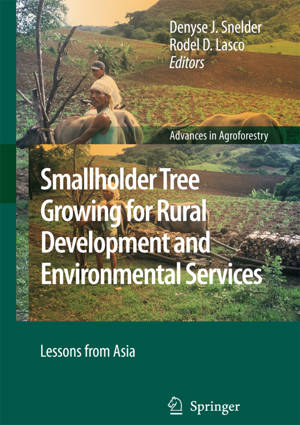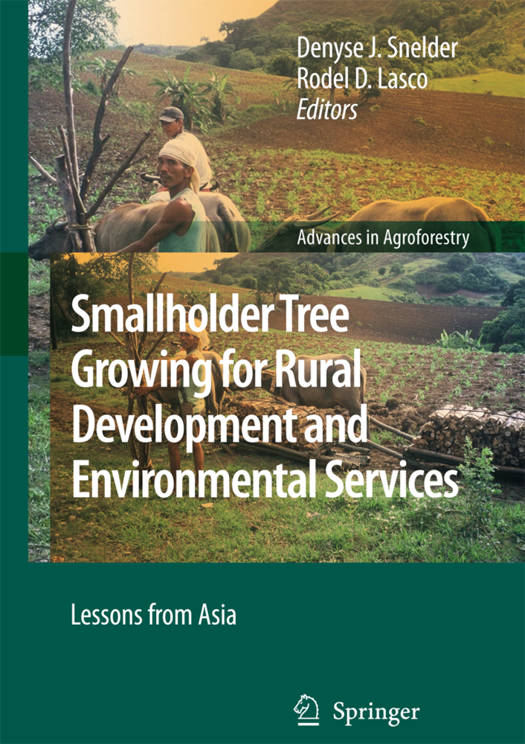
- Retrait gratuit dans votre magasin Club
- 7.000.000 titres dans notre catalogue
- Payer en toute sécurité
- Toujours un magasin près de chez vous
- Retrait gratuit dans votre magasin Club
- 7.000.000 titres dans notre catalogue
- Payer en toute sécurité
- Toujours un magasin près de chez vous
Smallholder Tree Growing for Rural Development and Environmental Services
Lessons from Asia
Description
Recent history reveals that both the large-scale reforestation projects of the 20th century have often been less successful than anticipated, and that tree growing by smallholders - as an alternative means to combat deforestation and promote sustainable land use - has received relatively little attention from the scientific and development communities. Taking a first step to addressing that balance, this collection of peer-reviewed papers adopts a comparative approach to explore the potential role that tree growing by farmers can play in sustainable forest management. The goal of this approach is to identify common threads and to start to develop a framework for future research and practice.
Presenting case studies from the Philippines and comparative data from a number of Asian countries the book reveals that farmer tree growing has the potential to play a significant role in sustainable forest management, and discusses the surrounding issues which must be addressed in order to realise this potential.
The book is primarily aimed at research scientists and graduate students interested in relevant aspects of forestry, agroforestry, agricultural diversity, natural resource management and conservation in agricultural landscapes, as well as those involved in sustainable development and international development studies. It will also provide a valuable reference for professionals, managers, consultants, policy makers and planners dealing with issues in sustainable development, natural resource management, land use change issues and participatory approaches to resource management.
Spécifications
Parties prenantes
- Editeur:
Contenu
- Nombre de pages :
- 494
- Langue:
- Anglais
- Collection :
- Tome:
- n° 5
Caractéristiques
- EAN:
- 9781402082603
- Date de parution :
- 26-09-08
- Format:
- Livre relié
- Format numérique:
- Genaaid
- Dimensions :
- 161 mm x 240 mm
- Poids :
- 725 g






